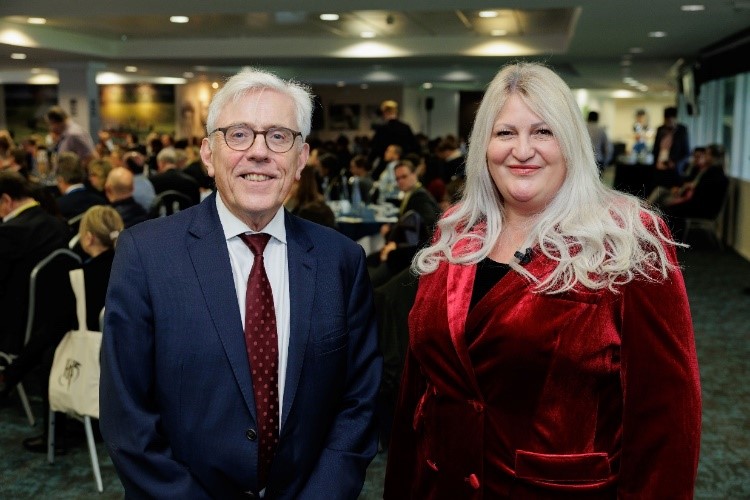Putting partnership at the heart of our supplier relationships
Collaborating with our suppliers will be critical to delivering more value and efficiencies for taxpayers, says Jacqui Rock, Chief Commercial Officer, NHS England.
The NHS procures over £30 billion of goods and services every year to help ensure patients get the care they need. We spend this money with over 80,000 suppliers across major sectors of the economy from estates, transport, and food, to medical devices and technology, all of whom are critical to the delivery of world class care.
Without our suppliers, our front-line clinicians cannot do their job and care for our patients, yet we know that the way we procure with them needs to improve. We need to change our relationship if we are to harness them to help deliver our priorities.
I’ve spent the last six months talking to our suppliers and listening to their feedback to understand their experiences of working with the NHS.
This culminated in our first ever NHS Supplier Forum on 29 November, where we brought together over 200 NHS suppliers and NHS commercial teams to discuss our shared challenges and opportunities.
Photos: Jacqui Rock, Chief Commercial Officer, NHS England and David Sloman, Chief Operating Officer, NHS England speaking at the inaugural NHS Supplier Forum.
Suppliers want to be brought to the table earlier so that they can work alongside us to mitigate supply disruption issues, drive sustainability, bring innovation into the NHS, increase value and reduce inefficiency.
I couldn’t agree more and that’s why I have set out a new vision for how the NHS will work with its suppliers going forward, that we will deliver through our new Central Commercial Function.
Shape and leverage the market
As the NHS, we have a huge amount of buying power. But we know there are examples where we hold separate contracts with the same supplier with price variations, different specifications and inconsistent performance agreements. For suppliers this takes time and is hard to navigate and for both of us, it drives up costs.
We should be working with our suppliers to leverage and shape the market by identifying appropriate national purchasing opportunities and generating savings by procuring at scale.
Thanks to the universal rollout of the e-commerce system Atamis, we will have a single overview of the NHS commercial landscape including our supplier footprint which will enable us to tackle variation and highlight opportunities.
We are also establishing a national strategic supplier management programme to build and enhance relationships and ensure suppliers are bought in up front at strategy development.
Use procurement to drive innovation
Procurement should not be a barrier to innovation. Procurement should be part of the solution.
We need to make it easier for innovators, especially small and medium-sized enterprises (SMEs), to get their products through the door once, by presenting ourselves as one NHS and ensuring that contracting is more straightforward.
It won’t always be a one size fits all, but we need to welcome innovation and provide a clear pathway in to ensure we identify the right innovation and then can scale it across the NHS.
I have met many SMEs that are also clinicians and their insight and experience in treating patients and using the products that we procure is invaluable, and we need to bring them to the table earlier.
Create a more resilient supply chain
A resilient supply chain is critical if we’re to continue to support the front line, so clinicians get the tools and products they need, in the right place, at the right time, and for the right price.
The key to this is early engagement so we can horizon scan to identify issues early and work together to collectively act up front to mitigate any risks.
This will also involve us working closely with our partners at NHS Supply Chain to ensure that we have wide availability of supplies, and any potential issues are communicated as soon as possible.
Eliminate waste and find efficiencies
All of this will help us do more with less and eliminate waste, but we need to go further.
While the NHS is already one of the most efficient health services in the world, spending just 2p in every pound on administration, there are many more areas where we can deliver better value for money for the taxpayer and our suppliers are a key part of this.
Given inflationary pressures, there is a clear need to ensure taxpayer’s money is spent well so that we can get more funding to the frontline and where it can have the biggest impact.
We want to use more technology and innovative products. Suppliers can help us identify where the NHS could be more efficient and deliver greater value through using different products or changing some of our practices.
There are plenty of well-known ways we can do this, such as switching from single use to reusable products, ensuring that products have longer expiry dates and are rotated between trusts, and not using all the ‘package’ of products in a procedure when not necessary, among many more.
Working together as a community
We have a huge opportunity to make a positive change, but we can’t do it alone. We have to build a community between our NHS commercial teams and our suppliers going forward.
The NHS Supplier Forum was just the start of our refreshed journey and our plans for an ongoing strategic supplier relationship management programme.
I look forward to seeing the progress that we can make for the benefit of the taxpayer, the NHS and our patients.
Suppliers can get in touch by contacting the team at England.supplier@nhs.net and can find out more about the work of the CCF by following us on Linked In and subscribing to our Bulletin.


